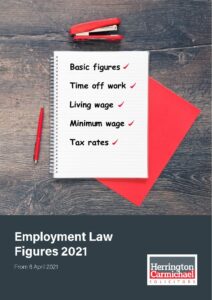The Government announced on Friday 24th September that upcoming changes to the law will make it illegal for employers to keep tips rather than passing them on to their employees. This is expected to increase income levels for around 2 million UK workers in the hospitality, leisure and services sectors.
Summary
Following findings in 2015 and 2016 that high street chains, including Pizza Express and Bill’s, were keeping tips paid via card payment, rather than passing the money onto staff there was pressure on the government to make it illegal for businesses to keep part or all of the service charges.
Cash tips are already protected by law and are the property of staff members, rather than the company. However, this law does not apply to card payments. Businesses are currently able to decide whether to keep card tips for themselves, or whether they pass it on to employees.
We already seemed to be moving towards a cashless society, but this has been sped up by the pandemic and the increased use of contactless payments. It is reported that 80% of all tips are currently being paid by card, and therefore, there are risks that these are not being passed onto the staff providing the service.
The new legislation is to include the following:
- Requirement for all employers to pass tips on to workers, without making any deductions
- A statutory code of practice on tipping will be developed, following further consultations with businesses, workers and other stakeholders to ensure fairness and transparency in the distribution of tips
- Employers should have a written policy on tips, and a record of how tips have been dealt with in accordance with the statutory code of practice
- There will be new rights for workers to request information relating to their employer’s tipping record. This will enable employees to bring credible claims to the Employment Tribunal
Paul Scully, the Minister for Small Business, Labour Markets & Consumers, has said that the intention of the plans is to “ensure tips will go to those who worked for it”.
This new legislation has not come into force yet and is expected to take at least another year. Employers found to be breaking this new law will be ordered to compensate workers and may also face fines. However, legal action will be reliant on employees bringing Employment Tribunal claims.
This change has been long anticipated and will positively impact nearly 2 million workers in the UK. Those businesses in this sector are encouraged to take steps to prepare for this new law before it comes into force.
For further information or to discuss the issues raised by this update, please contact our Employment Group on 0118 977 4045 or employment@herrington-carmichael.com.
Click here to see our ‘Employment Law Figures 2021’ which includes basic figures, time off work, living wage, minimum wage and tax rates.

This reflects the law at the date of publication and is written as a general guide. It does not contain definitive legal advice, which should be sought as appropriate in relation to a particular matter.


